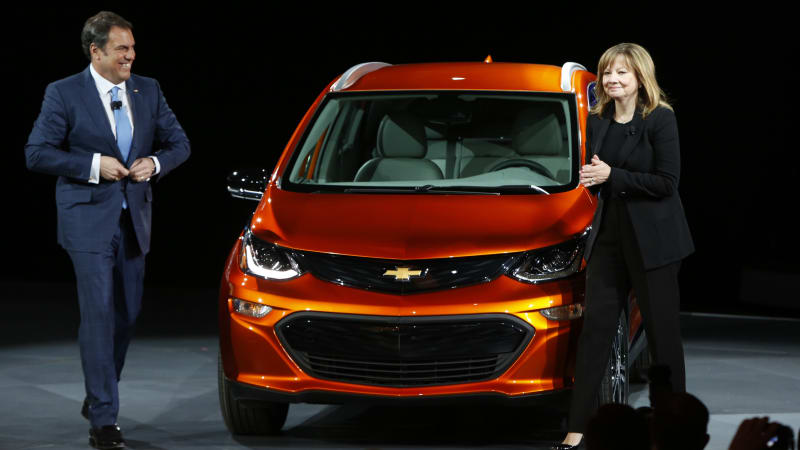Audi Repair Shop Doylestown
Call 267 279 9477 to schedule a appointment

DETROIT — General Motors says it will ask the federal government for one national gas mileage standard, including a requirement that a percentage of auto companies’ sales be zero-emissions vehicles.
Mark Reuss, GM’s executive vice president of product development, said the company will propose that a certain percentage of nationwide sales be made up of vehicles that run on electricity or hydrogen fuel cells.
GM says a nationwide program modeled on such a requirement in California could result in 7 million electric vehicles, or EVs, on U.S. roads by 2030.
California wants 15.4 percent of vehicle sales by 2025 to be EVs or other zero emission vehicles. Nine other states, including Maryland, Massachusetts, New Jersey and New York, have adopted those requirements. In January, California Governor Jerry Brown set a target of 5 million zero-emission vehicles in California by 2030.
The Trump administration criticizes California’s ZEV mandate, saying it requires automakers to spend tens of billions of dollars developing vehicles that most consumers do not want, only to sell them at a loss.
Reuss told reporters that governments and industries in Asia and Europe “are working together to enact policies now to hasten the shift to an all-electric future. It’s very simple: America has the opportunity to lead in the technologies of the future.”
A national mandate also would create jobs and reduce fuel consumption, CO2 emissions and “make EVs more affordable,” Reuss added.
GM, the nation’s largest automaker, will spell out the request Friday in written comments on a Trump administration proposal to roll back Obama-era fuel economy and emissions standards, freezing them at 2020 levels instead of gradually making them tougher.
Under a regulation finalized by the Environmental Protection Agency at the end of the Obama administration, the fleet of new automobiles would have to get 36 miles per gallon by 2025, 10 mpg higher than the current requirement.
But the Trump administration’s preferred plan is to freeze the standards starting in 2021. Administration officials say waiving the tougher fuel efficiency requirements would make vehicles more affordable, which would get safer cars into consumer hands more quickly.
GM on Thursday said it doesn’t support the freeze, but wants flexibility to deal with consumers’ shift from cars to less-efficient SUVs and trucks.
GM’s proposal would set lower zero-emissions vehicle requirements than California, but spread them to the entire nation. The requirements would gradually increase until 2025.
Reuss said GM’s proposal is a starting point for discussions on one set of national fuel efficiency and zero-emissions vehicle standards.
“We want really one national set of standards,” he said. “Engineering to multiple standards is very costly and frankly, unnecessary.”
Federal and California gas mileage standards have been the same since 2010. But if President Donald Trump’s administration ends up relaxing the requirements, it could create two standards, one for California and the many states that follow it, and another for the rest of the nation.
Trump could challenge California’s power to set its own standards, the so-called “California waiver” granted under the Clean Air Act, and that could set up a lengthy legal battle since California has pledged to defend its quest to reduce pollution.
“I think the facts, the science and the legal weight is behind California and its efforts to continue to be able to set its own standards if necessary,” California Attorney General Xavier Becerra said Wednesday.
Reuss said GM doesn’t want a long legal battle. “That just leads to a bunch of uncertainty,” he said, urging all parties to reach an agreement. He said the nation would be better served if companies could spend money on electric vehicle research rather than designing different vehicles for California.
Environmental groups still are likely to oppose any changes in the standards. Daniel Becker of the Safe Climate Campaign, an environmental advocacy group, said automakers like GM want the federal government to set standards rather than California because it’s easier to lobby for loopholes in Washington.
“The auto companies want to be able to make a small number of electric vehicles and a large number of gas-guzzling SUVs and other trucks instead of complying with the existing mileage and emissions rules,” Becker said.
The deadline for written comments on the Trump administration plan are due Friday, with a final decision expected in March.GM, which offers the all-electric Chevrolet Bolt with 238 miles of range, and the plug-in hybrid Chevrolet Volt, has invested millions to develop battery technology, so additional electric vehicle sales nationwide would help its bottom line. The company has promised to introduce 20 new all-electric vehicles globally by 2023.
Material from Reuters was used in this report.
Related Video:
from Autoblog https://ift.tt/2PnQjgr
